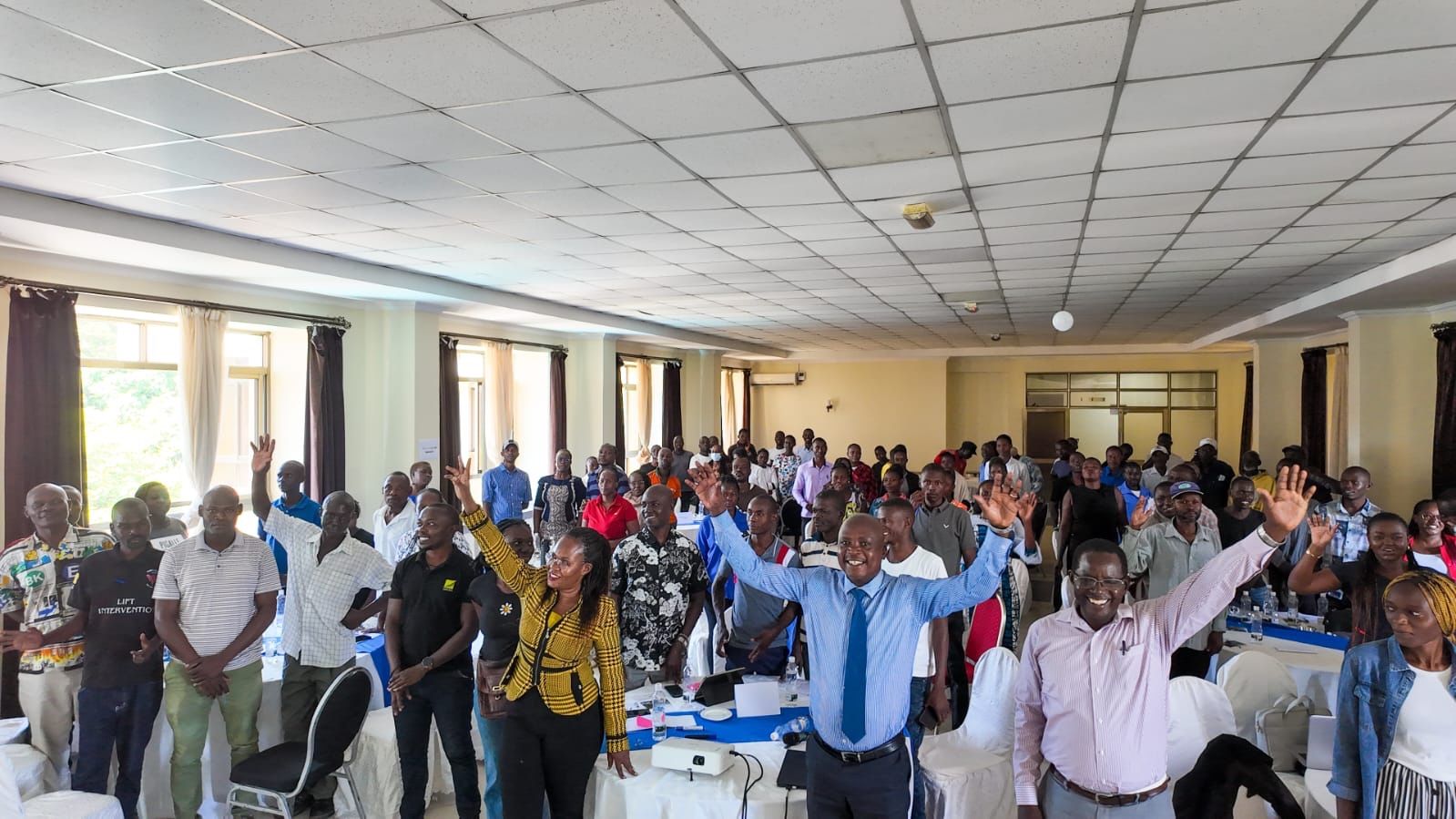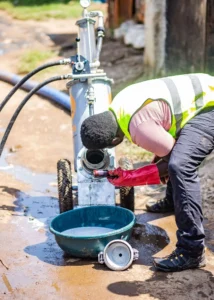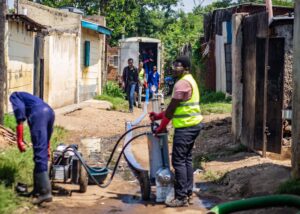Technological innovations for pit latrine emptying are transforming the sanitation sector—reducing the time required and increasing efficiency by approximately 18.4% compared to manual methods.
Over the past six months, OPERO-Services, in collaboration with the KAWAWAMA Pit Emptiers Association and with the support of the Kisumu Water & Sanitation Company Limited (KIWASCO), has been conducting detailed time-and-motion studies on pit latrine emptying equipment in Kisumu. This initiative forms part of a wider regional study also taking place in Kampala, Kigali, and Lusaka.
Understanding the Research
The study compares the operational efficiency of traditional manual pit emptying methods with four mechanical technologies:
- Pupu Pump
- PitVaq
- Gulper 1
- Trash Pump
Data collection has focused on the time required for key pit-emptying activities, including:
- Equipment setup
- Trash fishing
- Waste pumping
- Cleanup
Stakeholder Engagement
On June 12, 2025, we hosted a stakeholder workshop at Pinecone Hotel to share progress updates and introduce the next phase of data collection.
Preliminary findings show that the Pupu Pump is the most preferred technology among emptiers due to its ease of use and efficiency. Demand for this pump has been consistently high across participating groups, prompting consideration of adding a second Pupu Pump to support field operations.
A Strong Turnout
The workshop brought together 96 participants, including:
- Thomas Odongo, Managing Director, KIWASCO
- Eldah Odongo, Head of Corporate Affairs & Communications, KIWASCO
- Joel Obunga, Sanitation Development Officer, KIWASCO
- Joshua Adongo, County Public Health Officer
- Regional partners from Pit Vidura (Kigali) – Rutayisire Bruce
- Regional partners from CaDev – Catalyst Development (Lusaka) – Felix Sinkala
We also welcomed esteemed members from Kisumu’s pit-emptying groups: Sequence Holding, Busy Bee, Saniwise, Gasia Poa Waste Management Services, Blue Stars, Vuka Sasa, and Green Hood.
Prioritizing Worker Health and Safety
Following the workshop, a vaccination exercise was conducted on June 13, during which 63 pit emptiers received Tetanus and Hepatitis B vaccines. Follow-up doses have been scheduled, and an additional 11 workers who were unable to attend will be included in the next round of vaccinations.
Looking Ahead
As Kisumu’s sanitation sector continues to embrace innovation, these findings reinforce the importance of introducing efficient technologies while safeguarding the health of those on the front lines. The ongoing study will provide valuable insights not only for Kisumu but also for other cities across Africa facing similar sanitation challenges.




